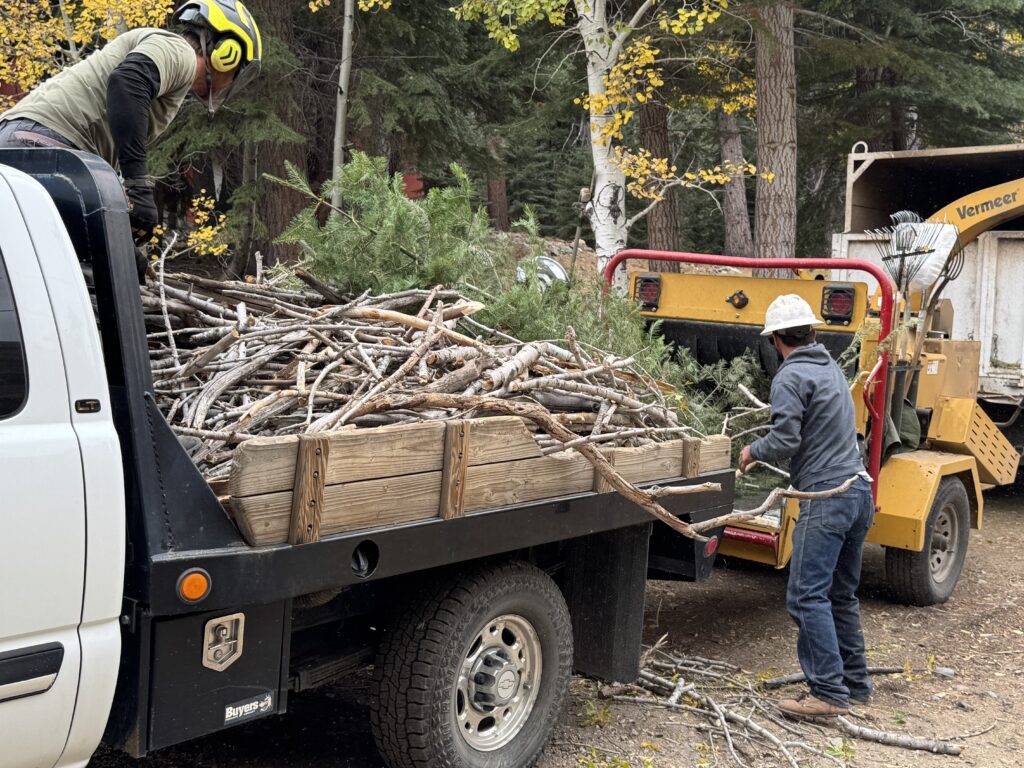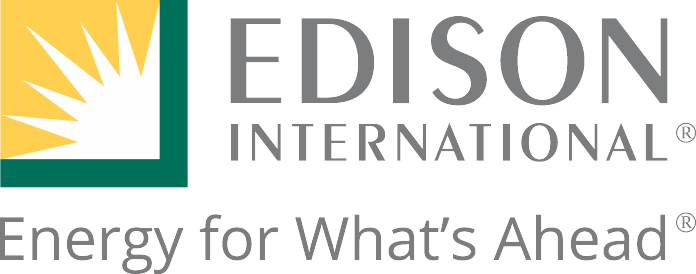Applications for the 2025 Community Directed Grant Program closed.
Background:
Communities in Inyo and Mono counties face critical needs to reduce wildfire risks and thereby protect or restore natural habitats. To support these efforts, Whitebark Institute, with funding from Edison International, is offering a small grant program to support fire prevention and response projects that empower community-driven stewardship and enhance wildfire resilience.
Programs and projects funded by this opportunity must focus on wildfire prevention, protection, mitigation, response and recovery in high-fire risk areas in Southern California Edison’s service area. All programs and projects must support the protection or restoration of the environment or an ecosystem, improve forest health, or provide habitat for fish, wildlife or plants.

For examples of 2024 projects: visit the Community Directed Grant Program page.
Eligible projects should fall into one of the following categories:
- Defensible Space & Home Hardening
- Fire Prevention Infrastructure & Equipment
- Wildfire Mitigation & Vegetation Management
Please see below for more information and eligibility criteria.
Application Details
- Maximum funding per project: $5,000.
- Requests exceeding $5,000 will not be considered. However, requests may be for funds to supplement a project supported by multiple sources.
- Funding is for specific, tangible projects—not ongoing operational expenses.
Application Period and Timelines
Application Opens: Feb 12, 2025
Applicant Assistance Office Hours: February 24th & 27th, 4:00-5:30pm
Application Closes: Mar 12, 2025
Award Notifications: Mar 28, 2025
Project Completion Deadline: Nov 15, 2025
Eligibility
- Eligible applicants include Tribes, Fire Safe Councils, FireWise Communities, Fire Protection Districts, Fire Departments, Community Service Districts, Homeowner Associations, and non-profits.
- Projects must be located within SCE’s service area in Inyo or Mono Counties. If you are unsure, please confirm that residents pay SCE for electricity in the project area and check this service area map.
- Individuals and for-profit businesses are not eligible.
Previous recipients are welcome to apply but are not guaranteed funding.
Fiscal Agents and Responsibilities
Applicants without tax status allowing them to receive contributed funds (e.g., 501(c)3 organizations or similar) must partner with a fiscal agent to manage funds.
Examples of Projects Eligible for Funding
Eligible projects must demonstrate tangible improvements in community wildfire safety and fit into one or more of the following categories.
- Defensible Space & Home Hardening
Projects focused on reducing wildfire risk by improving defensible space and home hardening.
Examples:
- Rentals of roll-off dumpsters for green-waste disposal from defensible space creation.
- Contracts with landscaping professionals for challenging defensible space projects.
- Purchase of home-hardening materials (e.g., vent covers, metal screens).
- High-visibility residential address signs and community education signage.
2. Fire Response Infrastructure & Equipment
Projects that enhance fire response capacity through infrastructure improvements or equipment upgrades
Examples:
- Enhancement of water sources and availability for firefighting.
- Purchase of personal protective equipment (PPE) for firefighting teams.
- Purchase of critical fire department equipment.
- Upgrade of emergency communication and/or notification systems.
3. Wildfire Mitigation & Vegetation Management Efforts
- Projects that focus on reducing the risk of wildfire through vegetation management or related efforts.
Examples:
- Small-scale fuels reduction efforts, including contracts with prescribed-grazing (e.g., goats) professionals.
- Disassembly of campfire rings in dispersed camping areas.
Exclusions
Grant funds cannot be used for:
- Salaries or administrative costs not directly associated with project completion
- Ongoing operational expenses.
- Projects outside of the SCE service area.
Review process
Applications will be reviewed by a panel of experts familiar with Eastern Sierra communities and landscapes. Projects will be evaluated based on their potential to:
- Enhance community wildfire safety.
- Provide measurable benefits to ecosystem restoration or protection.
- Demonstrate clear, tangible outcomes.
Reporting and Photo Requirements
Each funded project will be required to submit two simple reports during the grant period. Progress reporting templates will be provided to successful applicants and submitted to Whitebark Institute via email.
- July 31: Mid-Project Progress Report:
- A brief narrative describing the progress including accomplishments and challenges
- At least 3 photos of work in action, including team or community members involved.
- A budget table outlining how the funds have been planned to be spent.
- November 15: Final Impact Report:
- A brief narrative about the activities and outcomes achieved with the grant, including any key results or data.
- At least 2 additional photos showing the work in progress and the finished project.
- A budget table outlining how the funds were spent.
This grant application requires TWO separate submissions:
1. Completed Application Form — Answer all questions and submit directly through Adobe Acrobat Sign.
2. Budget Template — Download and complete the budget template and submit via email to:
administrator@whitebarkinstitute.org
with the subject line: “Community Directed Grant Funding — [Project Title] Budget Table”
Both parts must be submitted for your application to be considered complete. Please see below to apply.
For any technical issues with the application submission, contact:
administrator@whitebarkinstitute.org
We will be holding virtual office hours to support the application process. Office hours will be held February 24 and 27 from 4:00-5:30pm. Please see below to register for office hours and receive a meeting link.

